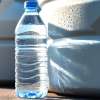28 February 2025
World Water Series – Innovative Ways to Clean our Oceans
A walk along the beach often fills us with appreciation for the beauty of the coastline - the soft sand beneath our feet, and intricate designs of washed-up shells and sponges. Yet, it is disheartening when that sensation is marred by litter that has either washed ashore or been left behind by beachgoers. From plastics to fishing nets and other debris, the sight of pollution is a reminder of the challenges our oceans and marine life face.

While restoring our waterways may seem like an impossible task, there is hope. Innovative technologies are emerging to combat the issue and restore the health of our oceans.
In this article, we will explore some of these inventions and how they are helping to achieve this goal.
The Interceptor
Powered by solar energy, the Interceptor autonomously collects debris. Barriers guide trash toward it without disrupting marine traffic. A conveyer belt then collects the debris out of the water and deposits it into onboard dumpsters and alerts local operators when it is full.
WasteShark
The Wasteshark is a small, autonomous robotic vessel that collects trash and data in waterways. Inspired by the whale shark, it scoops up floating debris and moves through the water either remotely or autonomously. It is easy to handle and empty, making it ideal for marinas, ports, and urban waterways.
Seabin
Operating 24/7 with minimal energy use, the pump creates a flow allowing it to capture floating waste, like plastic bottles and cigarette butts. Its filtration system can remove pollutants such as oil, fuel, detergent, and microplastics. Once the catch bag is full, it can be easily emptied.
Jellyfishbot
Designed in France, the Jellyfishbot collects floating water waste and oil. This programable robot can detect its surroundings autonomously within its designated area and record under water measurements. With the use of absorbent and non-absorbent booms or a special skimmer, it effectively contains and collects oil. Its compact size makes it ideal to navigate small spaces such as harbours, where it can work around boats collecting floating waste.
Trash Skimmer Boats
Trash skimmer boats come in various designs, capable of removing larger quantities of both organic and inorganic waste from harbours, rivers, and coastal waters. These boats are particularly effective for collecting bulky debris like tree branches, tires, and other navigational hazards that pose a risk to marine traffic.
Why So Much Rubbish
Studies showed that in the late 1960’s and 1970’s plastic pollution was noticed in our oceans. It is estimated that 75 to 199 tons of plastic waste currently pollute our oceans, with 1 to 2 million tons entering the ocean each year. Much of this coming from land-based sources, flowing from rivers and coastal areas into the oceans.
What We Can Do
To help combat ocean pollution, small actions can make a significant difference. Start by reducing single-use plastics – opt for reuseable bags, bottles, and containers.
When visiting beaches or waterways, take home your trash and consider bringing a small natural fibre bag to pick up any litter you encounter. You could also get involved in local clean-ups. It might just save a life and contribute to a safer and cleaner space for all to enjoy! Want to know what Orion Australia does with its fabrication waste? Click here.


